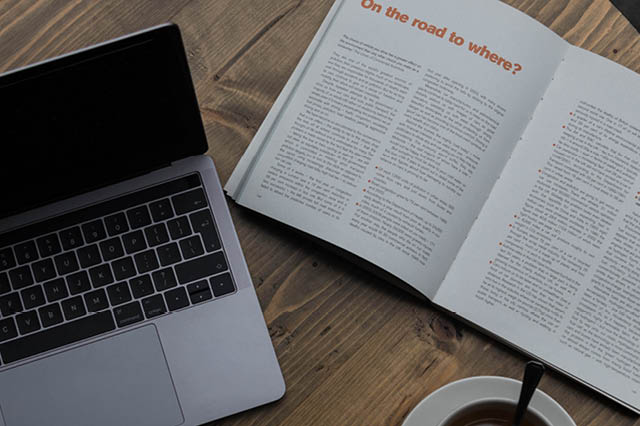| Before the interview |
| 1 |
First and foremost, be on time. Pre-plan your journey and allow extra time to get to the office if you're meeting your interviewers in person. You can always take a walk if you've arrived too early. Arrive at reception with five minutes to spare – while you don’t want to be late, you also don't want to be too early. For clerkship interviews, they may ask you to arrive 15 minutes in advance, so, again, you don't want to be too early. The same goes for a virtual interview – log in to the meeting within five minutes of the start time and always check your connection in advance of the interview. Some firms will require you to download software too, so be aware of any instructions to do this in the interview confirmations that you receive in advance of your meeting. If you're wearing headphones, test your audio and microphone in advance. |
| 2 |
The beginning of the interview will start off relatively relaxed and 'off-topic'. Your interviewers may ask about your day, how your commute into the office was or reflect on their own day before they get into your CV. Don't be shy to engage in this and be yourself. It will help you relax, and set the mood for the rest of the discussion. Tip – we know small talk can be difficult, especially when you're nervous, so we suggest brainstorming some questions to help you prepare. |
| 3 |
If you're able to interview in person, think about those first impressions. For example, look at the layout of the room if you are shown through to a meeting room before your interviewers arrive. Will your back be to the door when your interviewers walk in? (Solution – make sure you pick the seat facing the door). Stand up to greet your interviewers when they walk into the room and be mindful of your non-verbal/visual cues (they can be just as important as what you say!). Try to mirror their movements: eg you should sit down when they take their seats. Be aware of cultural differences and don't forget to smile. |
| 4 |
If the interview is virtual, pay attention to your background (eliminate sources of background noise and consider what the interviewers can see behind you), lighting (choose a well-lit spot, ideally facing away from a window) and camera placement (the camera should be level with your face). Speak slowly and clearly, and pause for a few seconds after the interviewer has finished speaking – sometimes video lag can interfere with communication, making it harder for interviewers to understand you or making it appear as if you are interrupting them. |
| 5 |
Make sure your mobile phone is turned off and not visible during your interview. If your phone does ring, however, try not to draw too much attention to it. Simply switch it off, apologise to your interviewers and move on. |
| 6 |
Remember that practice makes perfect (as the old adage goes), so memorise your CV inside out and you'll naturally exude confidence. Try not to read your resume if it’s in front of you, so learn the dates of your employment history and the positions you’ve worked in, in chronological order. You should also try to use any opportunity to put your interviewing skills to the test; ask a family member or a friend to go over your CV and identify areas that may come up in the interview. Utilise what's available at university – some firms offer mock interviews through the law students society, and your university careers service/ faculty may also be able to help. |
| 7 |
Know yourself and your elevator pitch (the name comes from the notion that your 'about me' speech could be delivered quickly and succinctly in the time it would take you to ride in an elevator, usually 20 to 60 seconds). You'll be able to revisit and use your elevator pitch in other situations aside from interviews too, such as events, so it's worth spending time practising this until the words flow naturally. |
| 8 |
Do your research before your interview. Most interviews are between 30 and 60 minutes, and you should be prepared to answer questions about the position you're applying for and what the firm you're interviewing with actually does. You could investigate their learning and development strategies, their values, the opportunities for career progression, their international opportunities and secondments, clients, the type of work they do, flexibility, sustainability and corporate social responsibilities. Digest it all but remember to keep in mind your own values and what's important for you. You don't want to apply for a position if those values don't align. |
| 9 |
Do take the time to research the interviewers before you head in for your interview too. You can demonstrate an understanding of both the firm and specific practice groups simply by asking your interviewer a question about their own background (eg what’s been your experience in private practice versus in-house, why did you decide to settle into banking and finance, what do you enjoy about front-end projects work). Please bear in mind your interviewers may change at the last minute due to eg a competing client demand, so try not get too flustered or let it get to you; simply thank the replacement interviewer for stepping in and get to know them in the interview. |
| 10 |
Find a contact within your target firm – they can provide a valuable insider perspective on the firm's life and culture, as well as tips on how to prepare for the interview. This could be someone you already know, or you could reach out to your personal and professional network and ask them to introduce you to somebody. You will be assigned a buddy during the clerkship recruitment process, so they can be your point of contact if you don't already have one. |







